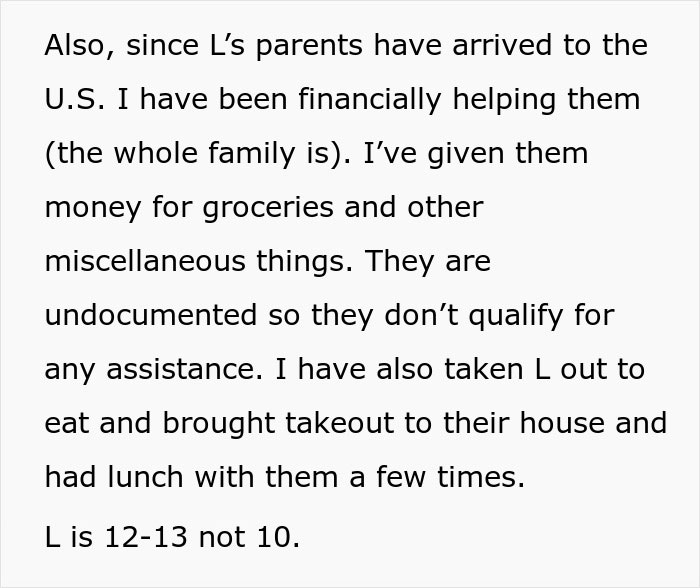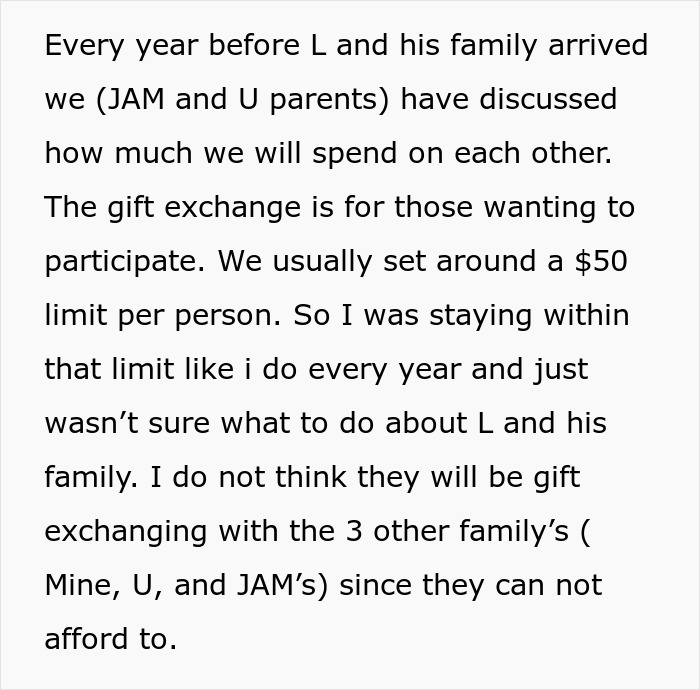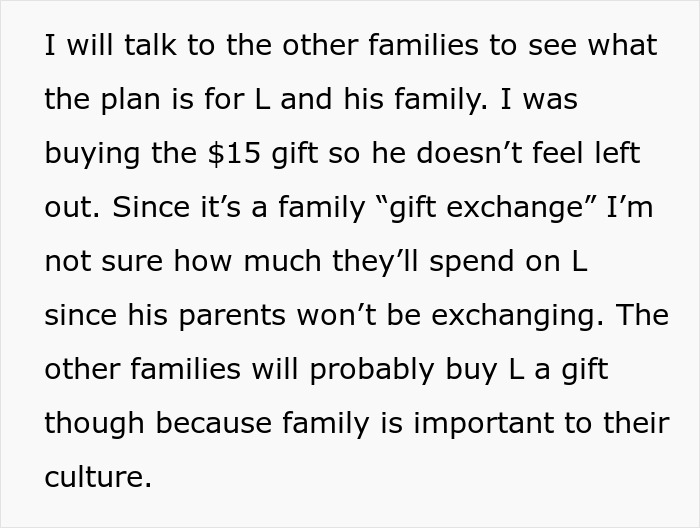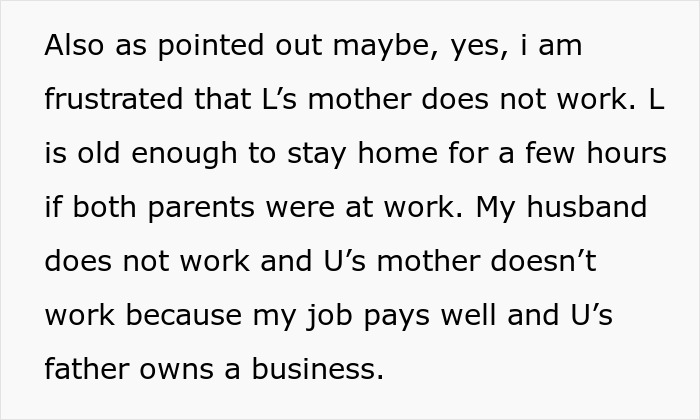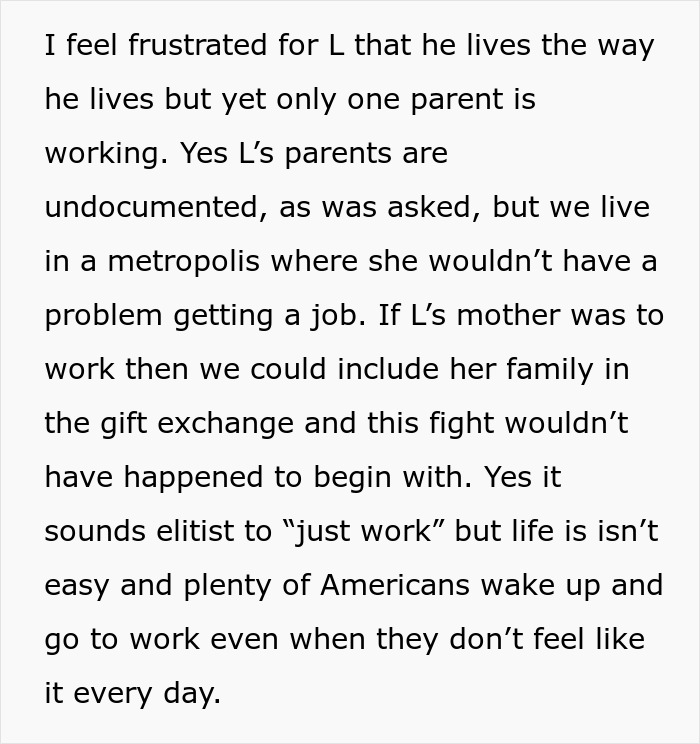Some say that Christmas is the time of giving, and while many people give, not everyone seems to expect nothing in return.
A redditor who turned to the AITA community asking if they were a jerk was deemed to be one after she admitted cheaping out on her nephew’s gift because he was from a poor family. The woman said his parents couldn’t afford to buy gifts in return, which is why she didn’t want to spend much on them either, and why the internet unanimously voted “YTA”.
In order to learn more about how preferential treatment can affect the little ones in the family, Bored Panda turned to sociologist, author, and the Founding Director of the Salem State University Center for Childhood & Youth Studies in Massachusetts, Yvonne M. Vissing, who was kind enough to answer a few of our questions. You will find her thoughts in the text below.
Giving presents is not about expecting something in return, but for some people that seems to be the main driving factor

Image credits: Any Lane (not the actual photo)
This woman didn’t want to spend much on her nephew’s gift as he was coming from a poor family

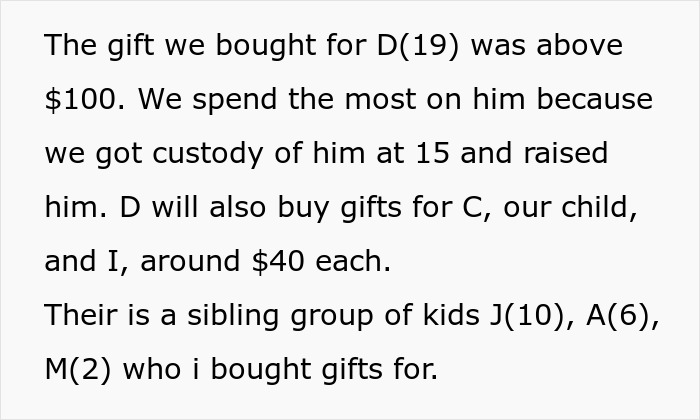
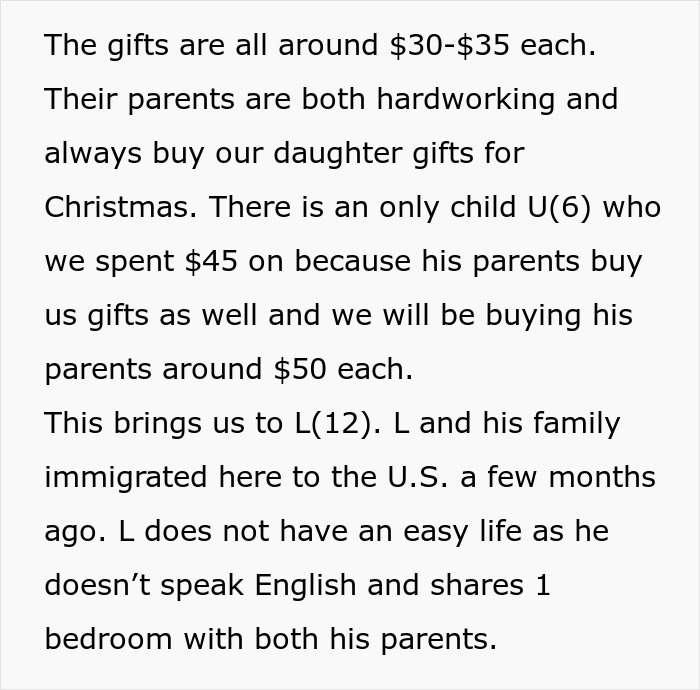
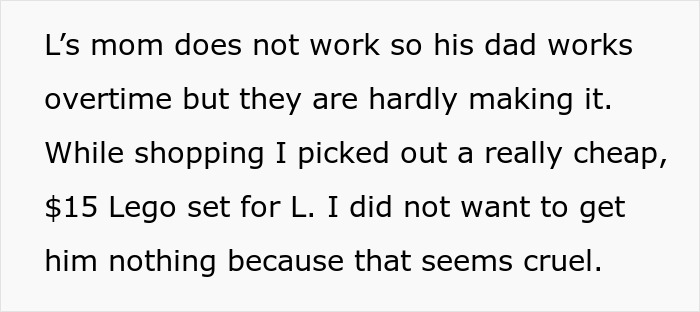
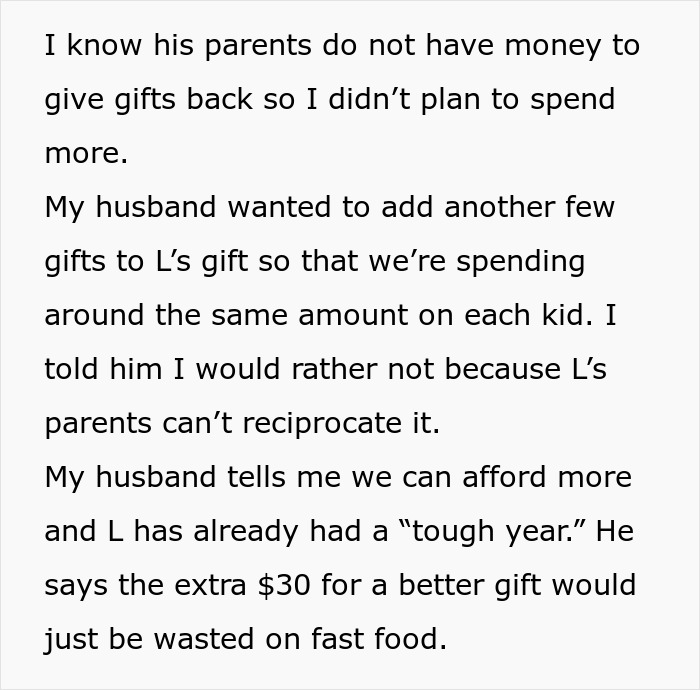
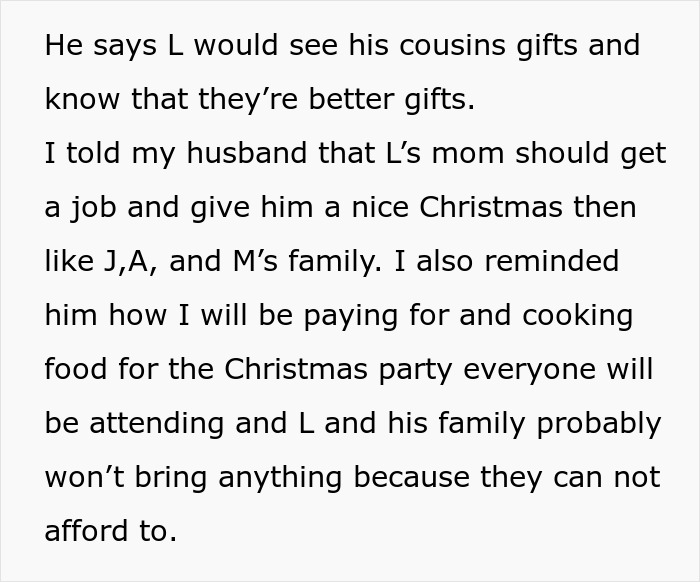
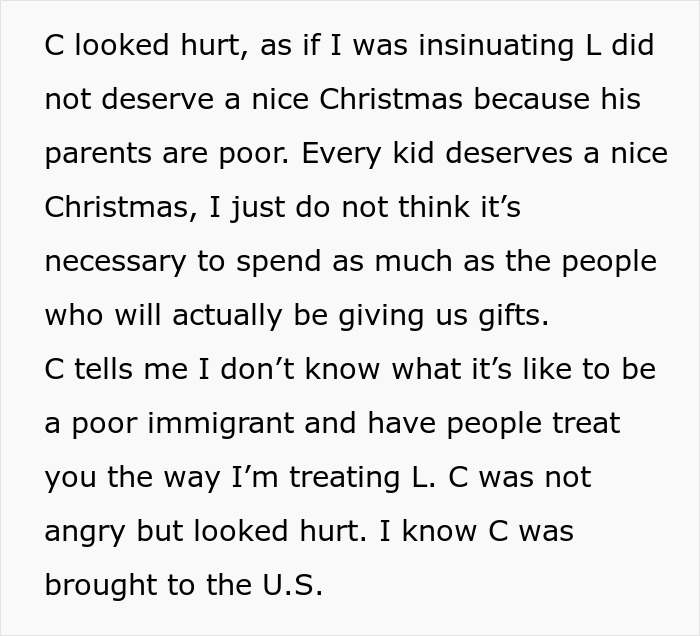


Image credits: Prostock-studio (not the actual photo)
It’s important to try to treat all the kids in the family equally

Image credits: Nicole Michalou (not the actual photo)
According to a sociologist and expert in child well-being, Yvonne M. Vissing, Christmas is the time of year to teach generosity, kindness and build bonds. “It is not about receiving big or expensive material objects. It is about receiving joy and knowing that we are part of a community of people who care about us, who will be there all year round to help us, and to celebrate a special moment that confirms that we are important.”
The expert emphasized that one of the most important things for any of us is to know that we matter, and families are the central place where we learn whether we do or not. “Being treated in a lesser way than other members of the family sends a message that we are not a priority.”
Being sure that they’re important is especially significant for children, which is why treating some of them differently from the others in the family can be quite detrimental. “It sends a message that they aren’t as loved, valued, or important as other members of the family; that for some reason, they’re not good enough and that other kids matter more than them,” Vissing pointed out.
Preferential treatment can have a detrimental effect on family relationships

Image credits: cottonbro studio (not the actual photo)
Even though it’s arguably evident without research, a study on family relationships found that such ties are very important to one’s well-being, be it with parents, siblings, or other members of the clan. In some close-knit families, that includes cousins, too, and being treated differently than the rest of them can have a strong negative impact on a young representative of the family.
“If the child is close with the other cousins and finds out that they got different—in this case, more expensive—gifts, it would imply that the aunt doesn’t like him as much as the other cousins. That can pose a long-term relationship problem,” Dr. Vissing pointed out.
The said study also suggested that as people age, family relationships tend to become more complex due to numerous factors, including diverse family structures, but they also tend to become more significant. That’s why it’s important to put effort into fostering such ties with your loved ones, and that does not necessarily entail buying expensive gifts, but typically calls for showing attentiveness and care.
“For many people, gifting is a material thing that is associated only with money and grandeur,” Dr. Vissing told Bored Panda, “but what matters is knowing that we were thought about and that we matter.”
Members of the AITA community believed the OP was a jerk in the situation









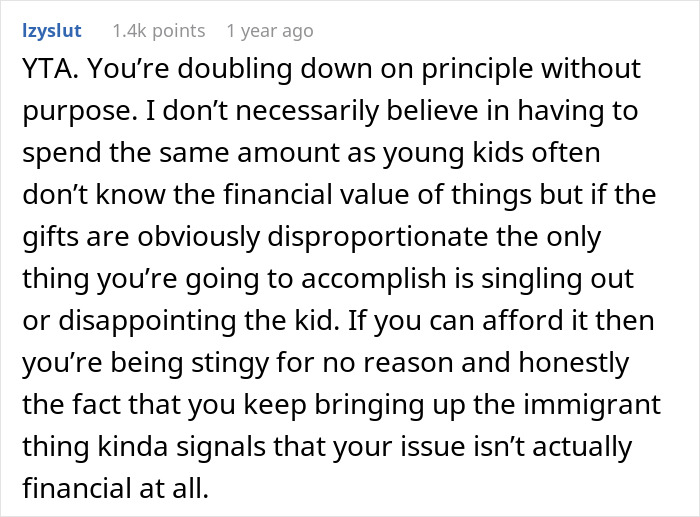




The redditor provided an update after reading through some of people’s comments

